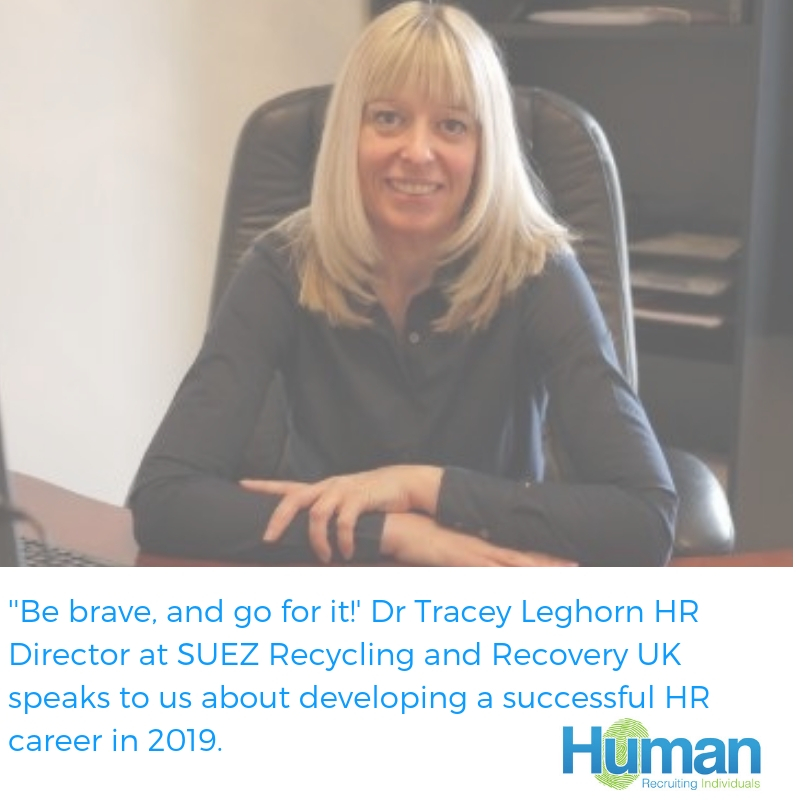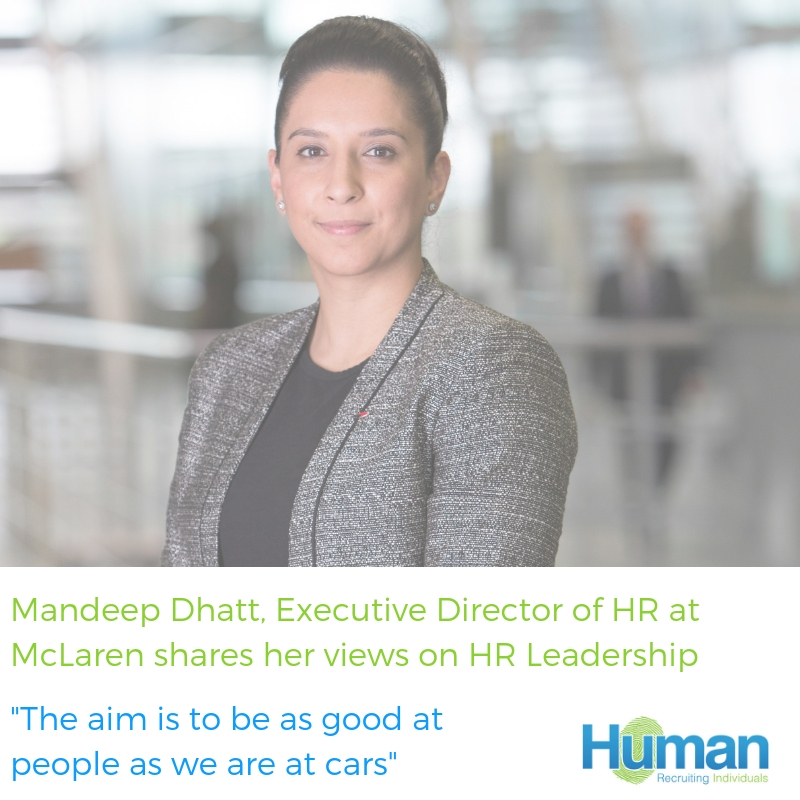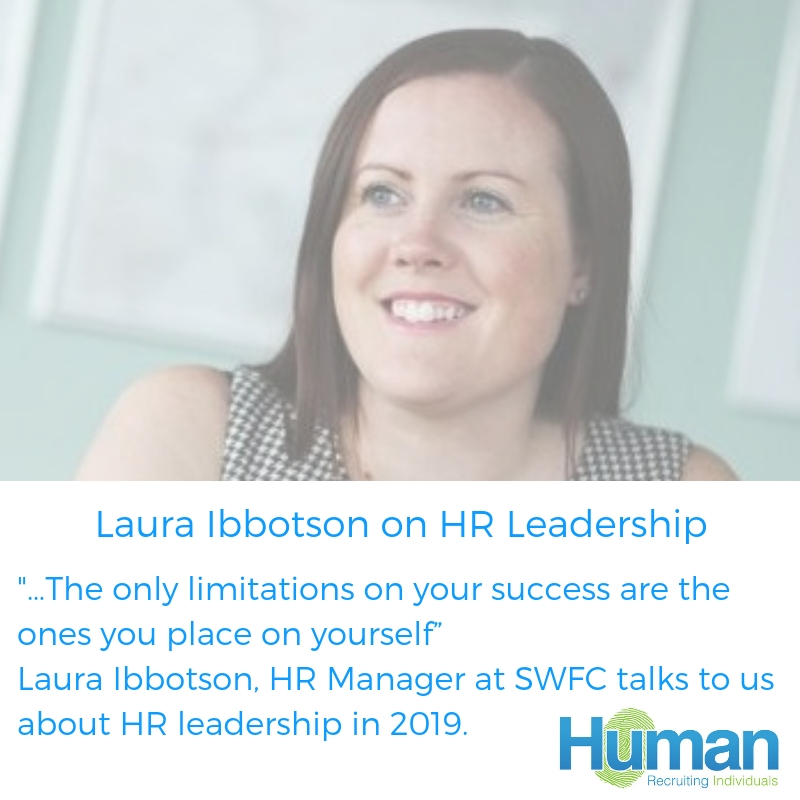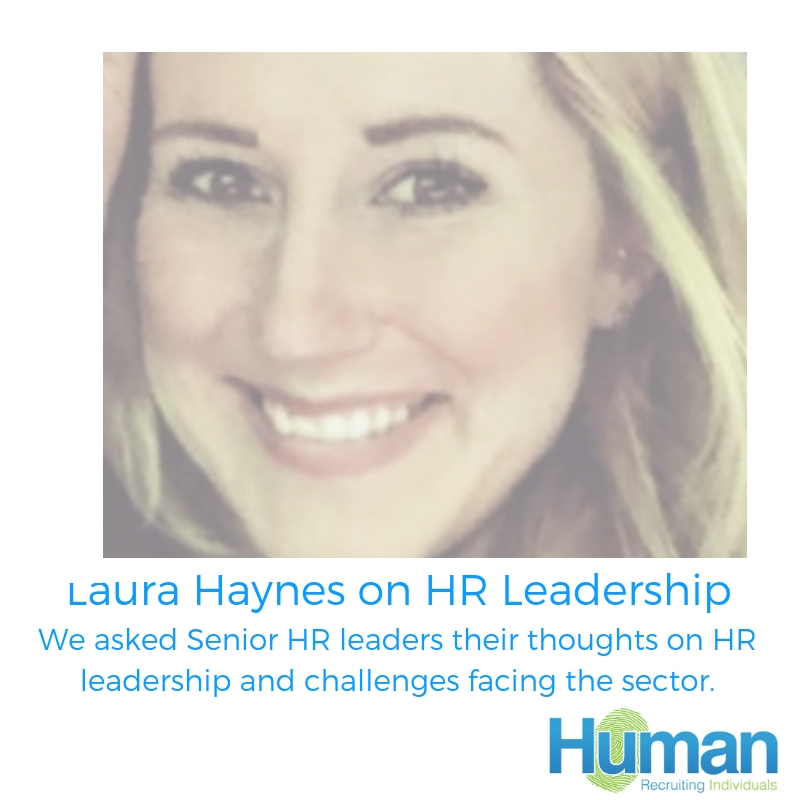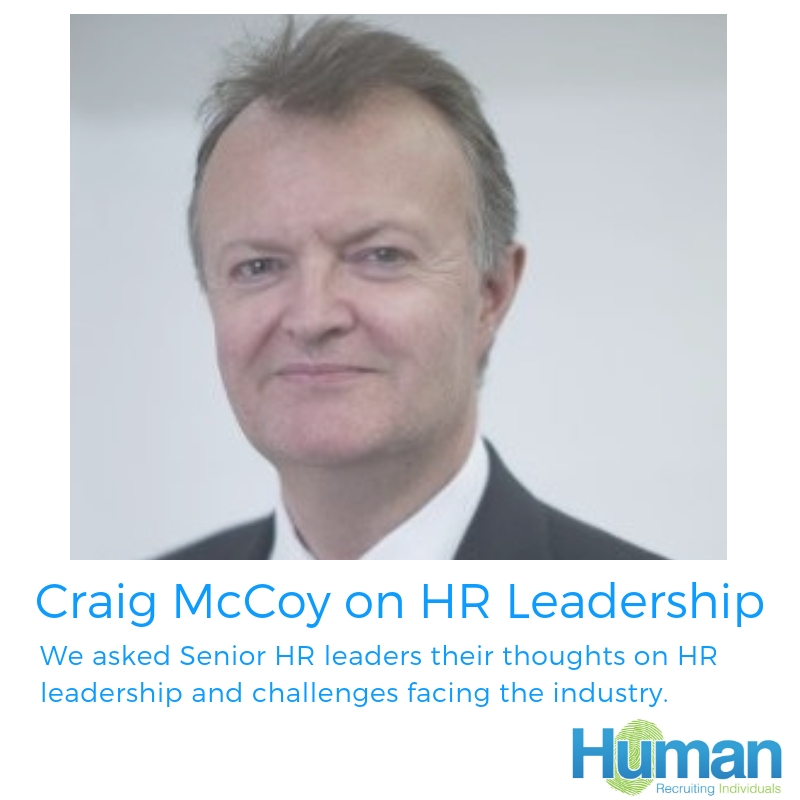‘Be brave and go for it!’ Dr Tracey Leghorn talks to us about building a successful HR Career.
As part of our commitment to supporting candidates to develop fulfilling careers, we’ve invited some HR Leaders to let us in on the secrets of their success. This week we had a great conversation with Dr Tracey Leghorn, HR Director at SUEZ Recycling and Recovery UK. We asked Tracey a few questions about her career in HR which spans both the public and private sector; a journey that started in Retail Management and has taken her to Board-level HR Director for one of the world’s largest waste, water and resource management companies. Like many HR professionals, Tracey didn’t start her career in HR. After becoming a Mum, Tracey went to university to study for an HNC in Business with Personnel, it was there she was given an assignment on horizontal and vertical HR integration and came across the work of David Guest. Tracey says she was excited about what strategic HR could contribute to business performance and from that assignment was hooked! We asked Tracey to give us a brief overview of her career to date. Tracey began her HR career in the NHS and has worked in a range of NHS organisations, developing her career there to include Executive Director of HR with the commissioners of NHS services and 9 years with the ambulance service. Despite being told that a return to the private sector would be very hard to achieve after more than a decade in the public sector, the opportunity to join the world’s largest food-service provider, Compass Group, came to her through her networks and she ‘bravely’ leapt into a totally new industry whilst at the same time, working to complete her Doctorate. In 2015, Tracey was approached to have a conversation with PwC. PwC had secured an iconic multi-million-pound HR consulting contract and were looking to source someone with large-scale transformational change and implementation expertise. In talking about her time at PwC, Tracey said that it had been a huge but enjoyable learning curve; she had loved working with a wide range of organisations on their most difficult business and people problems and having access to the very latest in HR thought leadership. However, she always intended returning to client-side and when the opportunity to join SUEZ Recycling & Recovery UK came across her path, Tracey says she was hooked on ‘helping to save the planet’ from the very first conversation. Naturally we were keen to learn more about Tracey’s perception of the HR industry and what she feels it takes to be a strong HR leader in 2019. What do you think is the key to being successful in an HR Leadership role? “Today, HR leadership roles require you to not only be an expert around the People Agenda but to contribute to commercially complex strategic business decisions; whether these be through the people lens or not. Being a HR technical expert is a given in HR leadership roles. It is your understanding of the business and its commercials and being able to fully contribute to strategic business decisions which differentiates you”. As a member of the board at SUEZ R&R UK, Tracey says that “this is what secures HR a place at the top table and where we can truly add value. People solutions and organisational performance are optimised in successful organisations through collaborative working at all levels between Finance, HR and Operations, never more so than at board level”. What are the common themes and or challenges you are facing currently? “I am excited by the digital agenda. The world is undergoing another industrial revolution and the world of work is changing. Both at home and at work, I’m keen to embrace new technology. It’s vital that organisations look to assess the impact of the digital revolution on their customers and their business. As an HR professional it’s important to keep yourself and your skills relevant so ensuring you are engaging with the latest thought leadership in this area and translating this into how this might impact your business and people agenda is vital. At the same time, the waste and resources industry is heading towards another major period of transformation. With public and political awareness heightened about the impact of the way we live our lives on our planet through programmes such as Blue Planet II, Defra have recently published their Waste and Resource Strategy which will see a period of major transformation in our industry and a wealth of opportunities for our business and people. Being at the forefront of this transformation will secure our continued business success and our position as thought leaders within the industry. What advice would you give HR professionals either just getting started in their career or looking for their next step on the career ladder? Networking is number one for Tracey. She says that networking “brings with it a wealth of connections, learning and opportunities”. Be on LinkedIn, work on ensuring you have a comprehensive profile and ‘bravely’ use it to build business relationships and learn from people from across a range of organisations and specialties. Think about your personal brand and use LinkedIn, Twitter and other platforms to build your brand through social media. Tracey always makes the space and time to network, both on and off-line, claiming it’s vital for anybody looking to learn and progress their career. She says that “learning from others is a very powerful form of learning”. Technical knowledge and academic learning in your field are also important. Tracey puts significant weight on academic learning. Her advice is to get your HR qualifications early where you can. Whilst she was 25 and a Mum before she went to university, Tracey says that over two decades later she is still using knowledge she gained from her early studies and beyond. When asked for one piece of advice she would give to someone looking to progress their HR career, she said: “Don’t listen to those who try to deter you from pursuing your dreams; be big and brave, and,

